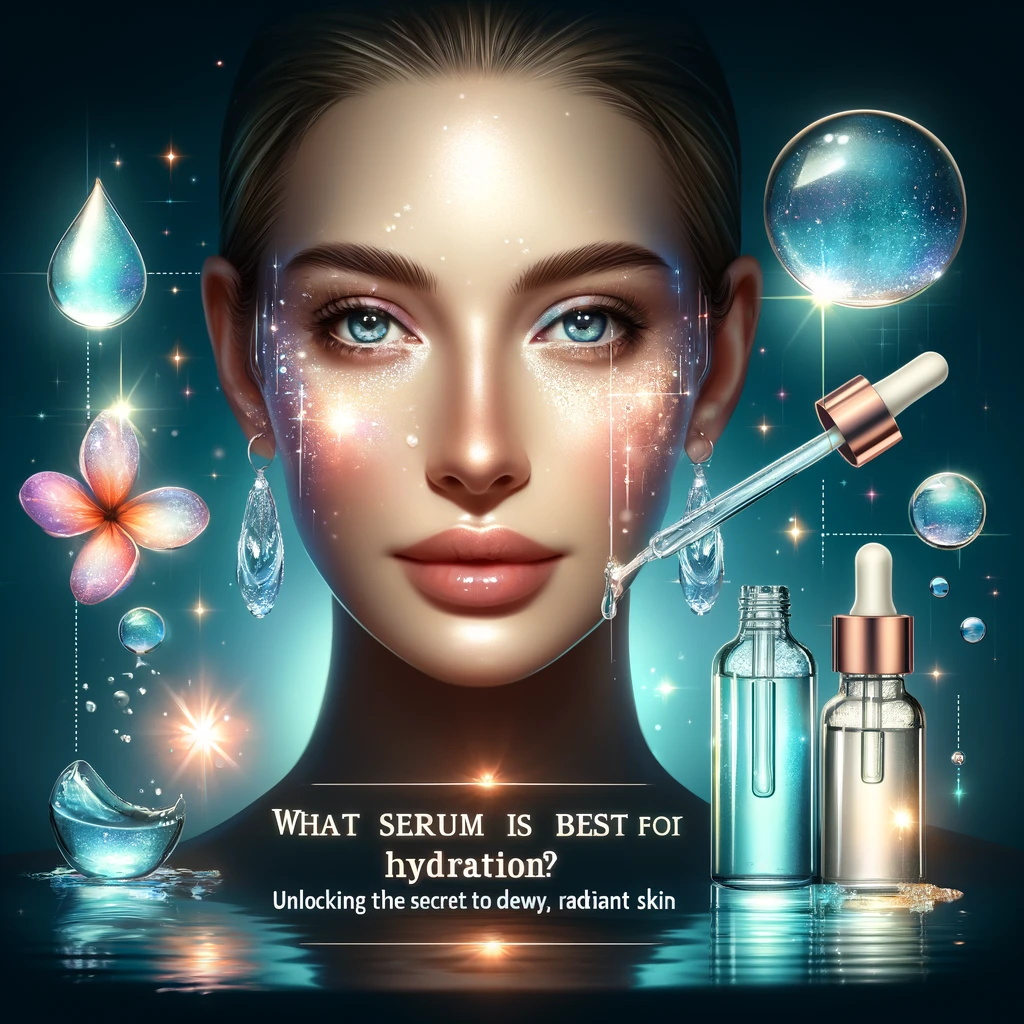In the quest for dewy, radiant skin, hydration is key. But with the overwhelming array of skincare products on the market, it can be challenging to determine which serum is the best fit for your hydration needs. Fear not, as we dive into the world of hydrating serums, unveiling the secret to achieving that coveted glow.
Understanding Hydration in Skincare
Before we explore the best serums for hydration, it's essential to understand what hydration means in the context of skincare. Hydration refers to the process of increasing water content within the skin cells, leading to a plump, elastic, and luminous complexion. A well-hydrated skin not only looks healthy but also forms a protective barrier against environmental stressors, preventing premature aging.
The Power of Hyaluronic Acid
When talking about hydration, one ingredient stands out from the rest: Hyaluronic Acid (HA). Known for its incredible ability to hold up to 1000 times its weight in water, HA is a powerhouse in attracting moisture from the environment and locking it into the skin. This makes hyaluronic acid-based serums a top choice for anyone looking to boost their skin's hydration levels.
Best Serums for Hydration
Hyaluronic Acid Serums: As mentioned, serums containing hyaluronic acid are the gold standard for hydration. They are suitable for all skin types, from oily to dry, and provide deep, lasting hydration without feeling heavy or greasy.
Glycerin-Infused Serums: Glycerin is another humectant that attracts water, promoting hydration. It works by drawing moisture from the air into your skin, making glycerin-infused serums a fantastic option for maintaining soft, supple skin.
Vitamin E Serums: Vitamin E is not only an antioxidant but also a skin-conditioning agent. Serums that combine Vitamin E with hydrating ingredients like HA and glycerin can provide an extra layer of moisture, enhancing the skin's natural barrier.
Aloe Vera Serums: Known for its soothing and healing properties, aloe vera is also a great hydrator. It can help to calm irritated skin while providing a burst of moisture, making it perfect for sensitive skin types.
Squalane-Based Serums: Squalane, a stable hydrocarbon that mimics skin’s natural oils, offers lightweight hydration, making it ideal for even the oiliest skin types. It helps to replenish the skin’s lipid barrier, preventing moisture loss.
Tips for Choosing and Using Hydrating Serums
Identify Your Skin Type: Choose a serum that matches your skin type. While hyaluronic acid is universally beneficial, the base of the serum (water-based for oily skin, oil-based for dry skin) can make a difference.
Layer Correctly: Apply your hydrating serum after cleansing and toning, but before heavier creams and oils. This allows the serum to penetrate deeply without being obstructed by thicker products.
Don’t Forget SPF: Hydration is an essential step in preventing premature aging, but so is sun protection. Always finish your morning skincare routine with a broad-spectrum SPF.
Patch Test: Before introducing a new serum into your routine, do a patch test to ensure compatibility with your skin.
Finding the best serum for hydration depends on understanding your skin’s needs and choosing a product that contains ingredients proven to attract and retain moisture. Hyaluronic acid stands out as a hero ingredient, but glycerin, vitamin E, aloe vera, and squalane also offer significant benefits. By incorporating one of these hydrating serums into your skincare routine, you’re on your way to achieving the radiant, dewy complexion you’ve always dreamed of. Remember, the secret to healthy skin is not just about what you apply topically but also about maintaining a balanced diet and staying hydrated from within.

